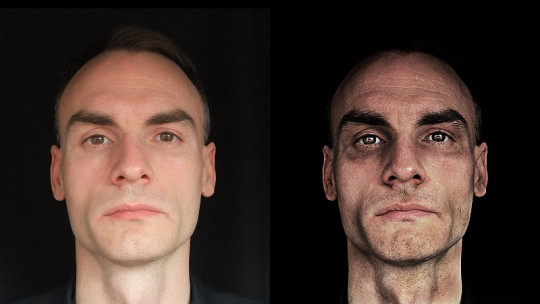
Many people talk about our current times as an era characterized by the constant search for excellence and success, notably influenced by social networks and the living of seemingly perfect lives on our screens. Increasingly, social pressure is spreading to reach ever higher and unattainable standards, both in our personal lives and in our professional careers.
In this sense, perfectionism can open many doors for us and encourage the achievement of lofty goals, but it can also destroy our self-esteem when it is guided by other people’s opinions.
Perfectionism is defined as the constant and incessant search for perfection, for everything that has a high objective, personal or social value. While it can motivate us to strive toward a goal, it can also lead to exhaustion, anxiety, and general dissatisfaction. Searching for the origin of what leads us to be perfectionists, a doubt arises, Is it a conscious choice we make for our own good, or is it an automatic response to socially imposed expectations?
In this article, we will seek to answer this question, unraveling the complexities of perfectionism, from its definition and manifestations in daily life to its impact on mental health and general well-being. We will analyze how society and its expectations can influence our desire to achieve perfection, as well as the personal decision that leads us to adopt this approach.
What is perfectionism?
Perfectionism, that elusive ideal of achieving perfection in all aspects of life, is a term that we all know and many of us have experienced at some point. However, before delving into the complexity of the reasons behind perfectionism, it is essential to understand what exactly this quality entails and how it manifests itself in our daily lives.
In its most basic form, perfectionism is defined as the relentless pursuit of perfection and the insistence on achieving extraordinarily high standards Those who are considered perfectionists tend to set unattainable goals, demand impeccable results, and often put excessive pressure on themselves to achieve them. It can manifest itself in various areas of life, from work and studies to personal relationships and recreational activities. It is not necessarily a negative characteristic in itself; It may motivate us to strive to reach our full potential, but the line between healthy perfectionism and unhealthy perfectionism can be blurry and subjective.
Healthy perfectionism involves setting realistic standards and the search for continuous improvement without falling into the trap of excessive self-demand. In this context, perfectionism can act as a positive motivator that helps us grow and develop. For example, a person seeking to achieve perfection in art or music can achieve a high level of mastery thanks to their dedication and attention to detail.
On the other hand, harmful perfectionism leads to a relentless pursuit of perfection, regardless of the negative consequences this may have on mental and emotional health. People who experience this type of perfectionism often feel constant dissatisfaction with themselves and may experience anxiety, chronic stress, and depression. The unrealistic expectations they set for themselves often prevent them from enjoying their accomplishments and experiencing personal gratification
The role of social pressure
Understanding perfectionism as the search for excellent goals that are well valued, cannot be understood simply as an individual trait, but is also deeply influenced by the environment and social expectations that surround us. Modern society, with its emphasis on success, productivity, and personal image, creates a fertile breeding ground for perfectionism. But to what extent are we perfectionists due to social pressure?
Social pressure for perfection manifests itself in numerous aspects of life, from physical appearance to academic and professional achievements. Social media, in particular, has exacerbated this pressure, as we are constantly bombarded with images of seemingly perfect people leading impeccable lives. This can lead to destructive comparisons and a sense of inadequacy, driving people to strive for unrealistic standards.
Perfectionism induced by social pressure can be especially harmful. People may feel that they must meet the expectations of others to be accepted and valued, which often results in high levels of stress and anxiety. Career decisions, educational choices, and personal goals can be heavily influenced by what is considered socially desirable rather than what they actually desire.
Psychological studies also support the idea that social pressure can fuel perfectionism The need to belong to a social group and seeking approval can motivate people to pursue perfection as a way to gain external validation. This type of perfectionism can be draining and lead to a lack of authenticity in a person’s life as they constantly strive to meet the expectations of others instead of seeking their own self-actualization.
Effects of perfectionism on mental health
Perfectionism, whether influenced more by social pressure or understood as a personal choice, can have a significant impact on the mental health of those who experience it. Below, we will explore in detail how the constant pursuit of perfection can negatively affect people’s psychological well-being.
1. Anxiety and stress
One of the most common consequences of perfectionism is increased levels of anxiety and stress. Those who relentlessly strive to reach unattainable standards often live in a constant state of worry and tension. Excessive self-demand and fear of failure can lead to a cycle of anxiety that interferes with the ability to enjoy life and fulfill daily responsibilities.
2. Depression
Perfectionism is also linked to depression. The feeling that you are never good enough can lead to feelings of hopelessness and personal worthlessness. Perfectionistic people often experience deep dissatisfaction with their achievements, which can contribute to the onset of depressive symptoms.
3. Low self-esteem
Perfectionism tends to undermine self-esteem. People who strive for perfection often base their self-esteem on their achievements and the approval of others When they don’t meet your extremely high standards, their self-image is negatively affected, which can lead to feelings of inadequacy.
4. Mental rigidity
Perfectionism can cause people to be inflexible in their thinking and behavior. The need to follow strict rules and standards can make it difficult to adapt to new circumstances or accept mistakes. This rigidity can limit the ability to learn from experiences and grow as an individual.
5. Social isolation:
The constant pursuit of perfection can lead to social isolation. Perfectionist people may feel uncomfortable showing vulnerability or making mistakes in the presence of others. This can lead to strained interpersonal relationships or avoidance of social activities
6. Burnout
Perfectionism can be a contributing factor to burnout. Those who constantly strive to achieve extremely high goals may experience physical and emotional exhaustion due to constant pressure and lack of adequate rest.
Searching for a balance
As we have explored the complexities of perfectionism and its effects on mental health, the question arises: how can we find a healthy balance between the pursuit of excellence and freedom from toxic perfectionism? In conclusion, we will provide strategies and tips to embrace a healthier relationship with perfectionism:
1. Self-awareness
The first step to finding balance is self-awareness Reflect on your own perfectionist tendencies and recognize when you are being too hard on yourself. Pay attention to situations or areas of your life in which you tend to pursue perfection excessively.
2. Set realistic goals
Instead of seeking perfection in everything, set realistic and achievable goals. Recognize that making mistakes is part of the learning and growth process. Learn to celebrate your achievements, even when they are not perfect.
3. Learn to say “no”
Learn to set boundaries and say “no” when necessary. You can’t do everything perfectly, and it’s important to prioritize your well-being and mental health Work overload can lead to burnout and harmful perfectionism.
4. Practice self-care
Prioritize self-care in your life. This includes taking care of your physical and emotional health, exercising regularly, getting enough sleep, and spending time on activities that relax you and make you happy.
5. Challenge social expectations
Question unrealistic social expectations and external pressure that may be influencing your perfectionism. Remember that your worth is not determined by meeting unreasonable standards.
6. Learn from mistakes
Instead of punishing yourself for making mistakes, use those moments as opportunities to learn and grow Mistakes are part of the human experience and should not be a cause for shame.
7. Encourage flexibility
Practice mental and emotional flexibility. Learn to adapt to changing circumstances and adjust your goals when necessary. You can do this by looking for activities and stimuli that are far from your comfort zone and for which you do not have a defined action plan.
8. Seek professional help
If you feel that perfectionism is seriously affecting your mental health and quality of life, consider seeking help from a mental health professional. Therapy can provide you with tools and support to address these concerns effectively.








